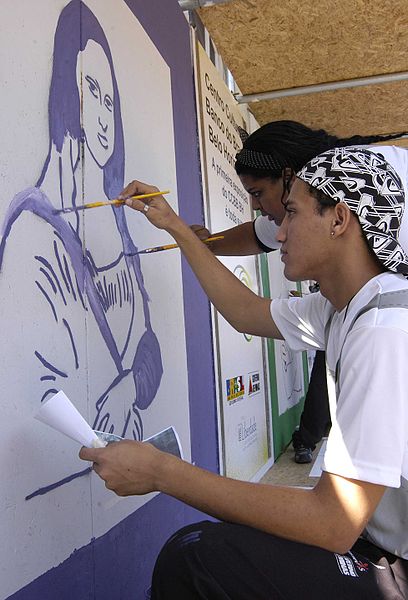
This Monday 7 June marks the deadline for Member States to transpose the new EU copyright rules into national law. The new Copyright Directive protects creativity in the digital age, bringing
concrete benefits to citizens, the creative sectors, the press, researchers, educators and cultural heritage institutions across the EU. At the same time, the new Directive on television and radio programmeswill make it easier for European broadcasters to make certain programmes on their online services available across borders. Furthermore, today, the Commission has published its guidance on Article 17 of the new Copyright Directive, which provides for new rules on content-sharing platforms.
The two Directives, which entered into force in June 2019, aim to modernise EU copyright rules and to enable consumers and creators to make the most of the digital world, where music streaming services, video-on-demand platforms, satellite and IPTV, news aggregators and user-uploaded-content platforms have become the main gateways to access creative works and press articles. The new rules will stimulate the creation and dissemination of more high-value content and allow for more digital uses in core areas of society, while safeguarding freedom of expression and other fundamental rights. With their transposition at national level, EU citizens and businesses can start benefitting from them.
Margrethe Vestager, Executive Vice-President for a Europe fit for the Digital Age, said: “The Copyright Directive and the Directive on television and radio programmes will allow for more content to be available across the EU. Creators will get a fair remuneration for their work and users can rely on clear rules protecting the freedom of speech. With the national transposition of both Directives, everyone will benefit from new opportunities, so we can fully enjoy the best of the internet and the TV and radio programmes. Also across borders.”
Thierry Breton, Commissioner for Internal Market, added: “With the new copyright rules, Europe has set a standard for the use of creative content online. The new rules ensure that creators are fairly remunerated in the digital space, while protecting freedom of expression, a core value in our democracies. It shows our determination to ensure what is illegal offline, is also illegal online. In particular, the guidance on article 17 will help to foster the licensing market for the benefit of creators and also of users, who will benefit from increased legal certainty when uploading their content online.”
New Copyright Directive
The Directive on Copyright in the Digital Single Market provides for new rules to ensure fairer remuneration for creators and rightholders, press publishers and journalists, in particular when their works are used online, and increases transparency in their relationships with online platforms. It also includes new guarantees to fully protect the EU citizens' freedom of expression online, who will be able to legitimately share their content. Moreover, the new rules create further opportunities for using copyright-protected material online and across borders for education, research and preservation of cultural heritage purposes.
Guidance on Article 17 - Copyright Directive
The guidance on Article 17 of the new Copyright Directive aims to support a coherent application across the Member States of this important provision of the new EU copyright rules. Article 17 provides that online content-sharing service providers need to obtain an authorisation from rightholders for the content uploaded on their website. If no authorisation is granted, they need to take steps to avoid unauthorised uploads. The guidance provides practical indications on the main provisions of Article 17, helping market players to better comply with national legislations in their implementation.
The guidance takes into account the views gathered from stakeholders and the Member States, who participated in meetings organised by the Commission to discuss best practices for cooperation between online content-sharing platforms and rightholders.
New Directive on television and radio programmes
The new rules set by the Directive on television and radio programmes ensure that EU citizens can get access to a wider choice of programmes online and across borders. The Directive makes it easier for broadcasters to make certain programmes available on their live TV or catch-up services in all Member States, while ensuring that creators are adequately paid for the use of their content. It also simplifies the distribution of more radio and TV channels by retransmission operators.
Background
In September 2016, the European Commission proposed modernising EU Copyright rules as part of the Digital Single Market, ensuring they are fit for the digital age. The Directives were adopted in April 2019. Member States now need to notify the Commission of their laws transposing the two Directives. The Commission will analyse the texts after their notification.
The guidance on Article 17 of the Copyright Directive aims to support Member States in implementing the new rules on the use of protected content by online content-sharing service providers and foster the development of the licensing market between rightholders and online content-sharing service providers, ensuring an appropriate balance between the different fundamental rights of users and rightholders. In order to provide Member States with the best guidance, the Commission organised a stakeholder dialogue to discuss best practices for cooperation between online content-sharing platforms and copyright rightholders.
This stakeholder dialogue, carried out between October 2019 and February 2020, gathered representatives of rightholders, online content-sharing service providers, consumers, users and fundamental rights organisations to share their views and to discuss possible practical solutions for the application of Article 17. To finalise the stakeholder dialogue, the Commission carried out a targeted written consultation between July and September 2020. The different elements of the guidance have also been discussed with Member States in the context of the Copyright Contact Committee, following the consultation of last summer. Photo by Governo do Estado de Minas Gerais, Wikimedia commons.



































